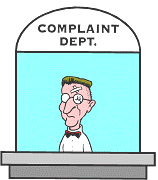... Augusta, Georgia
... Cincinnati, Ohio
... Brooklyn, New York
... Arvada, Colorado
... Houston, Texas
... Miami, Florida
... Los Angeles, California
... Omaha, Nebraska
... Chattanooga, Tennessee
... Guymon, Oklahoma
... Albany, Georgia
... Stockton, California
... West Jordan, Utah
... Birmingham, Alabama
... Madison, Wisconsin
... Orlando, Florida
... Richmond, California
... Tampa, Florida
... Seattle, Washington
... Gloucestershire, England
... Miami, Florida
... Los Angeles, California
... El Paso, Texas
... Dallas, Texas
... The Dalles, Oregon
... Bruce Crossing, Michigan
... Wallingford, Connecticutt
... St. Louis, Missouri
... Staughton, Massachussets
... South Yarmouth, Massachusetts
... Atlanta, Georgia
... Mundelein, Illinois
... North Conway, New Hampshire
... Arlington, Washington
... Des Moines, Iowa
... Kanab, Utah
... Bend, Oregon
... Oklahoma City, OK
... Alta Loma, California
... Springville, New York
... Reno, Nevada
... Sacramento, California
... Nikiski, Alaska
... Abingdon, Virginia
... Los Gatos, California
... Eureka, Montana
... Steubenville, Ohio
... Cumberland, Wisconsin
... Los Angeles, California
... Batesville, IN
... Kalispell, MT
... Palm Harbor, Florida
... Wilson, Wyoming
... Henderson, Nevada
... Jacksonville, Florida
... Independence, Missouri
... Pasadena, Maryland
... Joondanna, Washington
... Phenix City, Alabama
... Reno, Nevada
... Jacksonville, Florida
... Tucker, Georgia
... Crawfordsville, Indiana
... Belfast, Maine
... Charlotte, North Carolina
... Pahrump, Nevada
... Kissimmee, Florida
... Los Angeles, California
... Utica, New York
... Waltham, Massachusetts
... Palo Alto, California
... Olympia, Washington
... Huntersville, North Carolina
... Pahrump, Nevada
... Knoxville, Tennessee
... Columbus, Ohio
... Coronado, California
... Olympia, Washington
... Harpersfield, New York
... Bend, Oregon
... Decatur, Alabama
... Los Angeles, California
... Buffalo, New York
... Roswell, Georgia
... Norman, Oklahoma
... Great Barrington, Massachussets
... Chicago, Illinois
... Tampa, Florida
... Chicago, Illinois
... Beltsville, Maryland
... Newark, Delaware
... Cheyenne, Wyoming
Pleadings

Drawing the Battle Lines
Say What You Must Prove
Pleadings say what the fight is about.
Weak pleadings lose cases.
Powerful pleadings win.
Proper pleadings lay a firm foundation for your case.
Proper pleadings state all the facts you must prove to win.
Proper pleadings tell the court who should win and why.
This class includes sample pleadings and shows you how to write proper pleadings to win your case.
Class Includes:
- Sample Forms
- Where the Battle Begins
- Allege + Prove = Victory
- Pleadings in General
- Jurisdictional Allegations
- Factual Allegations
- The All-Important WHEREFORE clause
- Evidence Discovering Allegations in Pleadings
- Demand for Jury Trial
- The Six (6) Types of Complaints
- Components of All Good Complaints
- How to Write Pleading Paragraphs
- Answers and What MUST be Included
- Conclusion
Do You Know Enough to Win?

Enter your email then click the green button to take quiz.
The unauthorized reproduction or distribution of a copyrighted work is illegal. Criminal copyright infringement, including infringement without monetary gain, is investigated by the FBI and is punishable by fines and federal imprisonment. No portion of this course may be published, duplicated, shared, or used by anyone other than the current subscribers.
© 1997-2025 by Dr. Frederick Graves
d/b/a Jurisdictionary®
All Rights Reserved
866-LAW-EASY ( 866-529-3279 )
19420 Heritage Harbor Parkway
Lutz, Florida 33558
Make Money $$$ Helping Others!
Free Flowchart
Free Legal Tactics
MISSION STATEMENT: To promote peace and prosperity through public understanding of The Rule of Law and the principles of Due Process that make Civilization possible.

